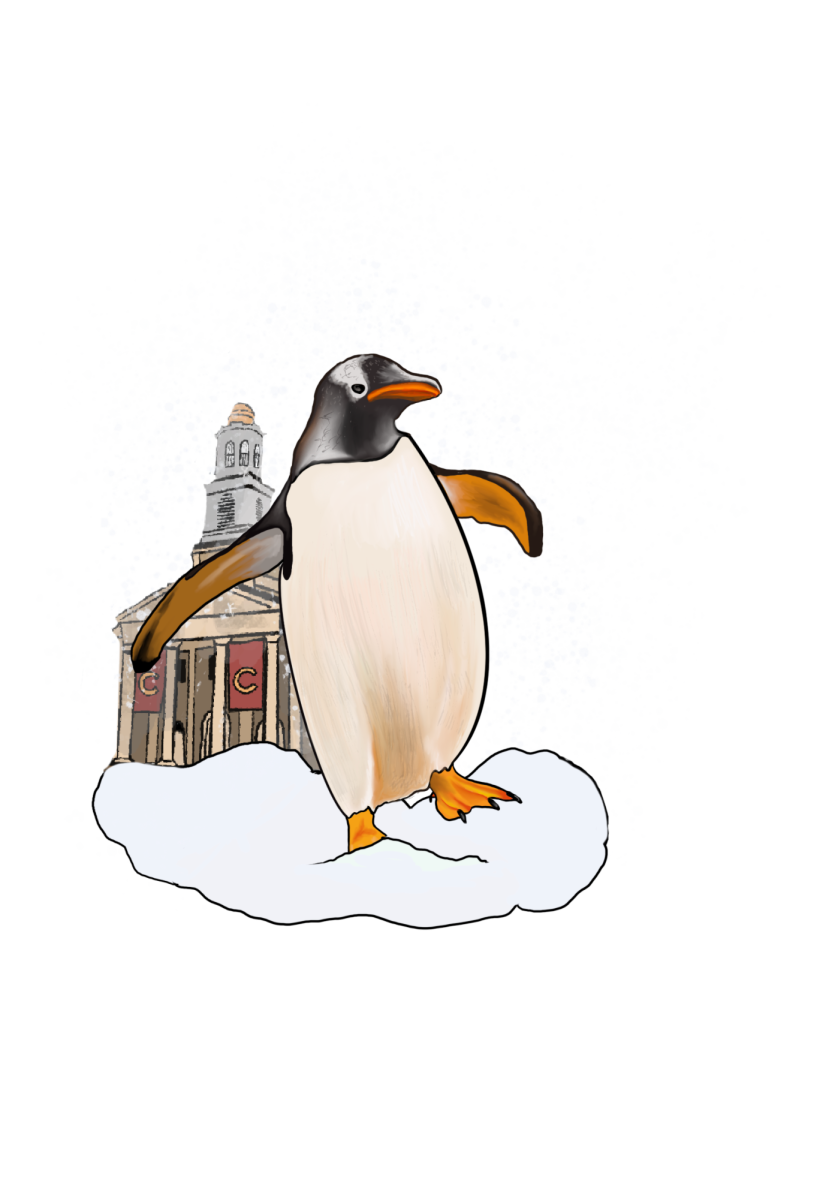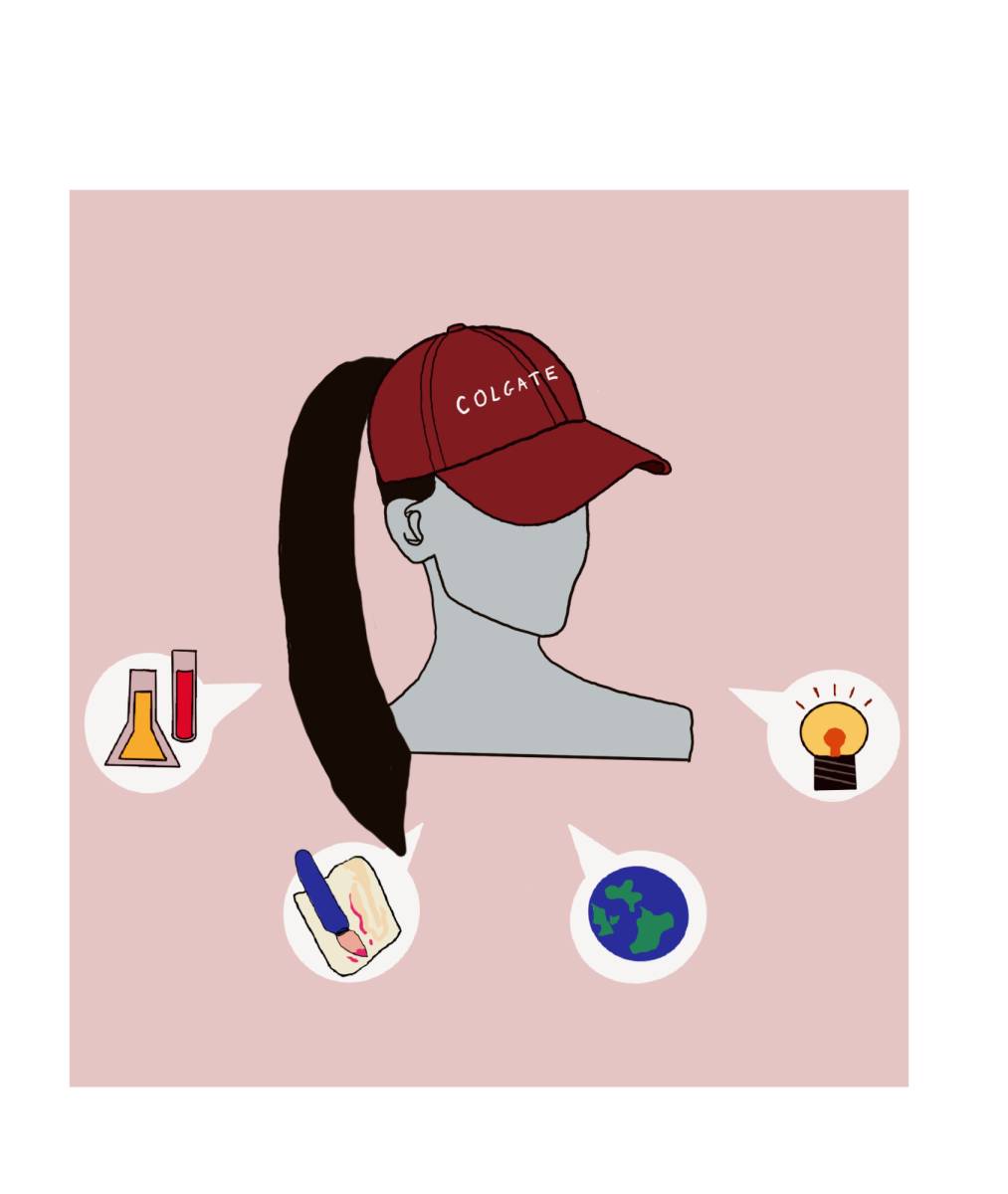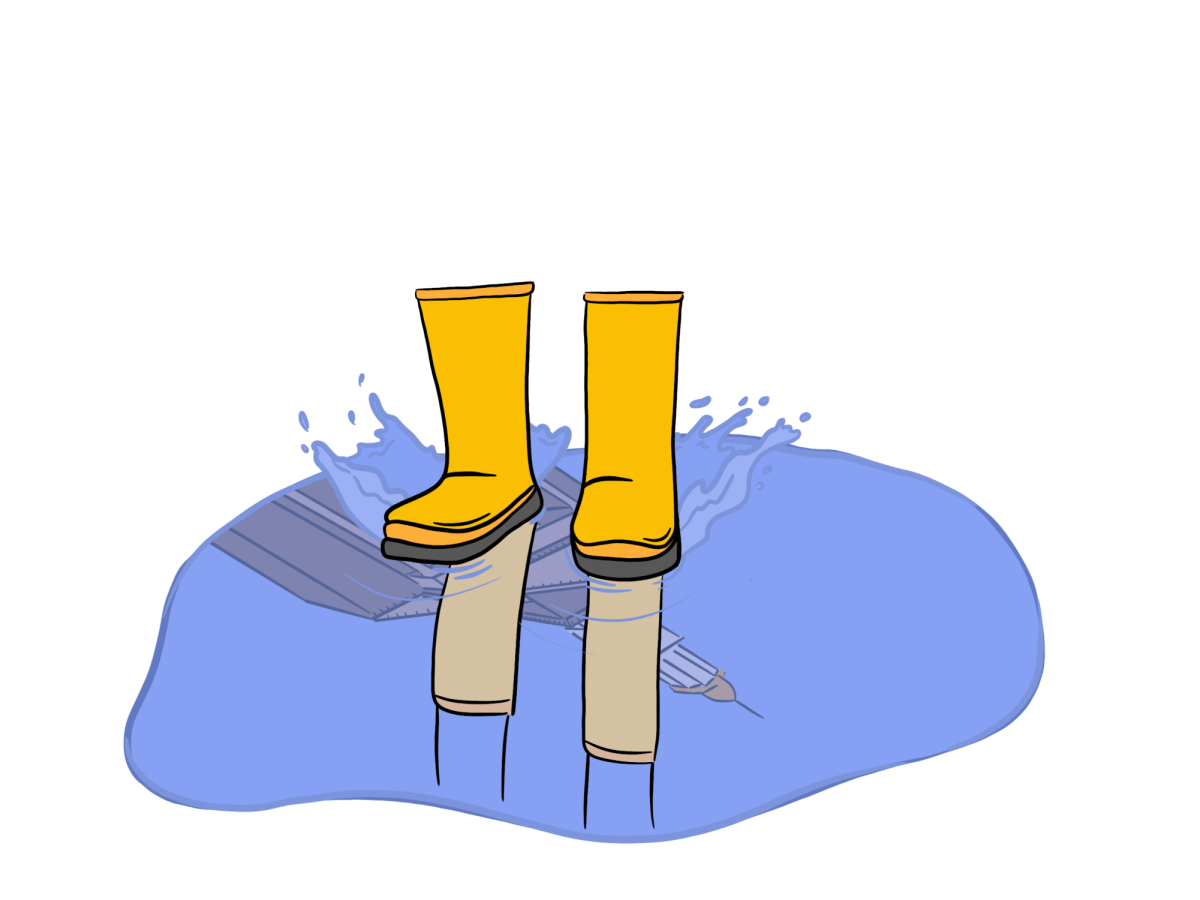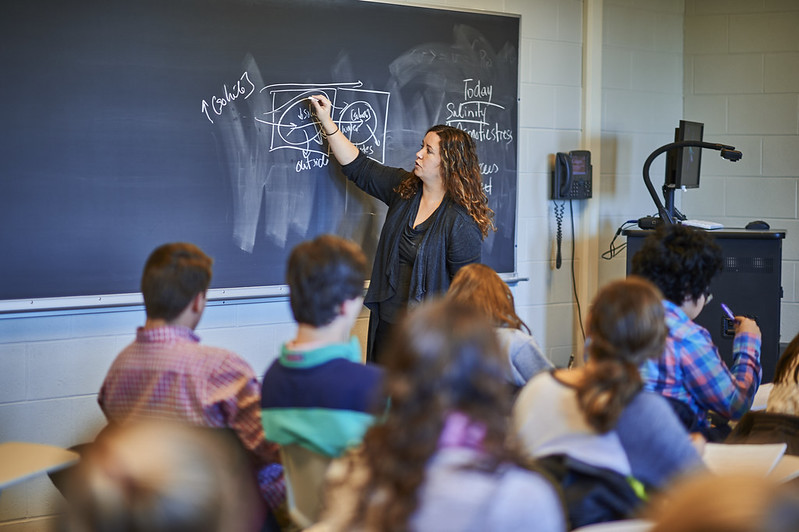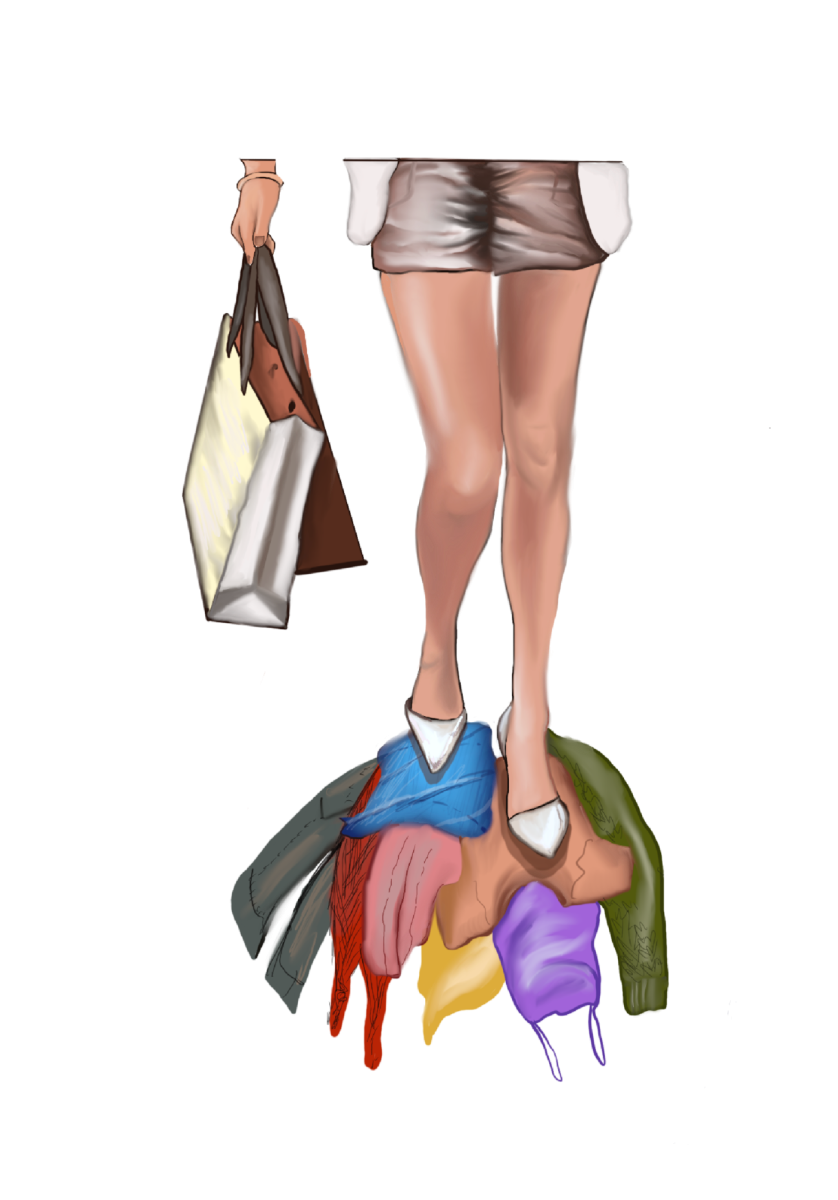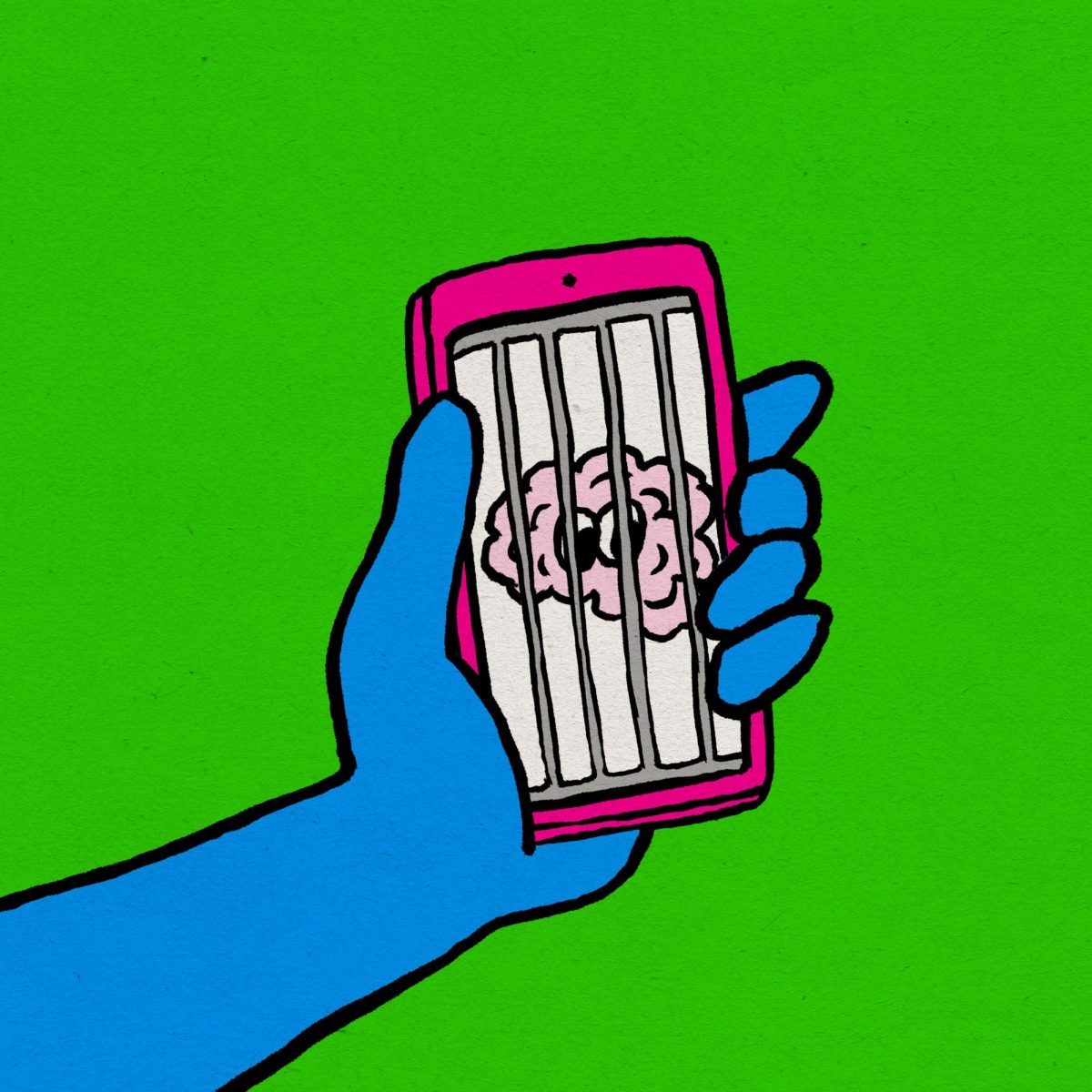As a Colgate University student, you must accept the inevitable snowy weather. The whimsical winter landscapes create postcard pictures for social media posts and prospective student brochures. However, the picturesque scenes do not capture the whole reality of a Northeast winter. Presumably, students expect cold, Upstate New York winters when they commit to Colgate as wide-eyed high school seniors. It is easy to forget about the struggles of navigating this snowy terrain when shown idyllic images of a seemingly real-life snow globe. Upon the first snowfall, those unaccustomed to the Colgate weather shortly realize their Timberland boots and Canada Goose jackets do not fully protect them from the dangers of navigating campus. Students spend most of the academic year in this winter weather. Thus, we must address the concern of poor snow removal at Colgate and equip every Colgate student with vital snow travel methods to traverse the snow-covered campus hills safely.
As prospective students, we were told the walking paths and steps are heated, promising student safety in below freezing temperatures. Either someone lied to us or Colgate forgot to pay the heating bill because the layer of ice that resembles an ice slip ’n slide behind Curtis Hall says otherwise. I must confess, the heated steps do well in preventing ice buildup, but in doing so, a steady inch or two of slush forms on each step. The slush layer creates an unpredictably collapsing surface. One step could be soft slush, while the next step hides a slippery surprise beneath the packed precipitate. I would advocate for increased efforts toward snow removal on steps, in particular.
Nearly every time we receive an excess of snow, the steep path behind Curtis Hall toward the lower campus causes numerous tumbles. I find joyous satisfaction when making it down the (supposedly heated) sloped path without slipping before encountering the hazardous slushy step roulette. The slippery Case-Geyer Library hill threatens to take students to the ground, even in the smallest of dustings. Those brave enough to cut through the grass — or, more appropriately, the snow — find that what lies under the top layer of snow can be a slick sheet of ice that sends its victims into a slippery slide down the hill. If Colgate needs more help to clear the paths, we should create an on-campus job or start a volunteer system for shoveling because the snow removal is currently subpar.
As a Minnesota native, I have experienced my fair share of slipping and sliding on pavements. Like every Midwestern child, I learned the classic slogan, “Walk like a penguin.” The penguin shuffle technique begins by bending your knees and pointing your toes outward. This allows maximum stability and positions you to react to abrupt ice patches. Once in proper stance, you simply walk like a penguin, taking small, flat-footed steps while maintaining a center of gravity over your feet.
Unfortunately, not every Colgate student knows the proper penguin technique, resulting in many falls across campus. I propose the establishment of a “penguin shuffle” safety campaign on campus. With students hailing from regions of less severe winters, many need this proper snow navigation education. Even those from frosty climates need a simple reminder. In fact, I receive a humbling reminder every snowfall when I am nearly taken to the icy ground after confidently strutting down the freshly snow-covered paths. I refuse to journey to the library during and after snowfalls for fear of returning with a bruised behind. Such a fear should not exist for any Colgate student.
Further, Colgate’s campus is not accessible for physically handicapped students, including nonfunctioning handicap push plates and the naturally rugged terrain of Hamilton, N.Y. The lack of proper snow removal exacerbates the problem for those who are physically disabled. As an able-bodied student, I find walking across campus moderately dangerous in the winter. For those with crutches or wheelchairs, I imagine it is nearly impossible. For example, for first-year student Arshia Khadivizand, navigating the Colgate landscape in a wheelchair requires planning and strenuous physical effort, even in the best weather conditions. In days of snow-packed trails and slick icy paths, Khadivizand describes his experience navigating the minimally plowed trails as an additional barrier.
“It’s the icy patches and bits of snow, which are harder to remove, that are a pain. They stay on the ground for a while and are an inconvenience,” Khadivizand said. “It would be ideal if something was done to help avoid these patches of snow and ice.”
The additional barrier established by poor snow removal to handicapped students creates exclusion from accessing valuable resources, such as the library or even the dining halls. The lack of snow removal efforts reflects the neglect of physically disabled students on campus. Improved snow removal could be a step in the right direction towards improved accessibility at Colgate.
The Colgate staff works hard to clear paths with plows and salt, but desperately needs help keeping up with the sizable lake-effect snow dumps. The problematic weather brings a plausible solution: improved snow removal in conjunction with adopting a campus-wide “penguin shuffle” movement. The seemingly endless winters continuously highlight the issue of weather safety. As a Colgate community, we must address the pressing public safety and accessibility issues caused by poor snow removal to create a more inclusive and safer campus. So cheers to a warm and sunny spring – optimistically, very soon!


